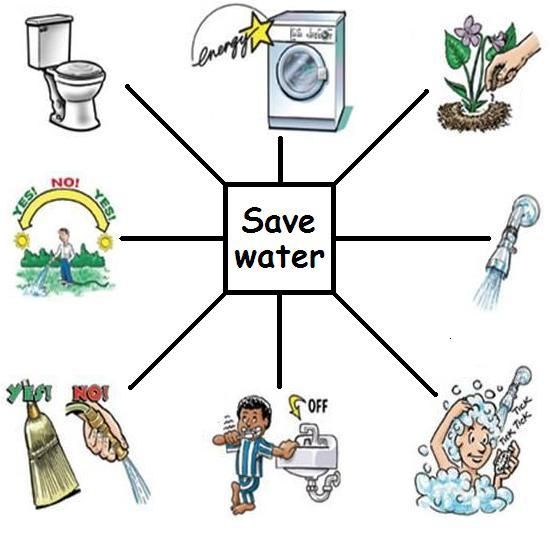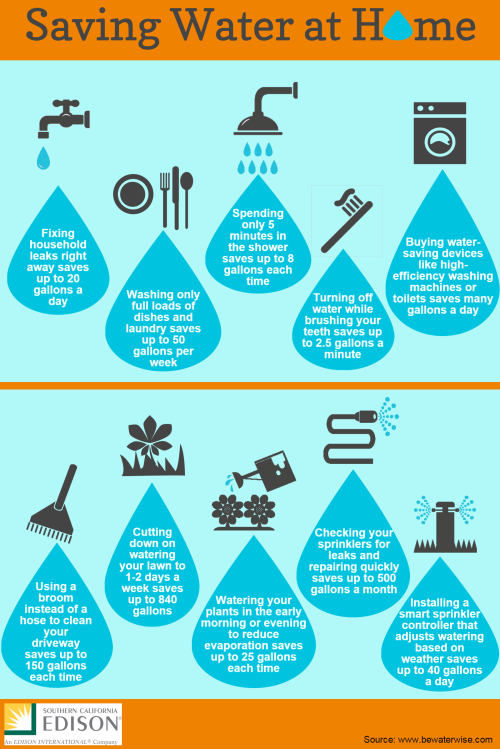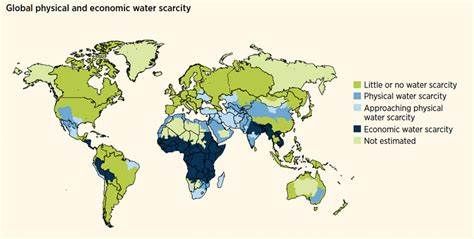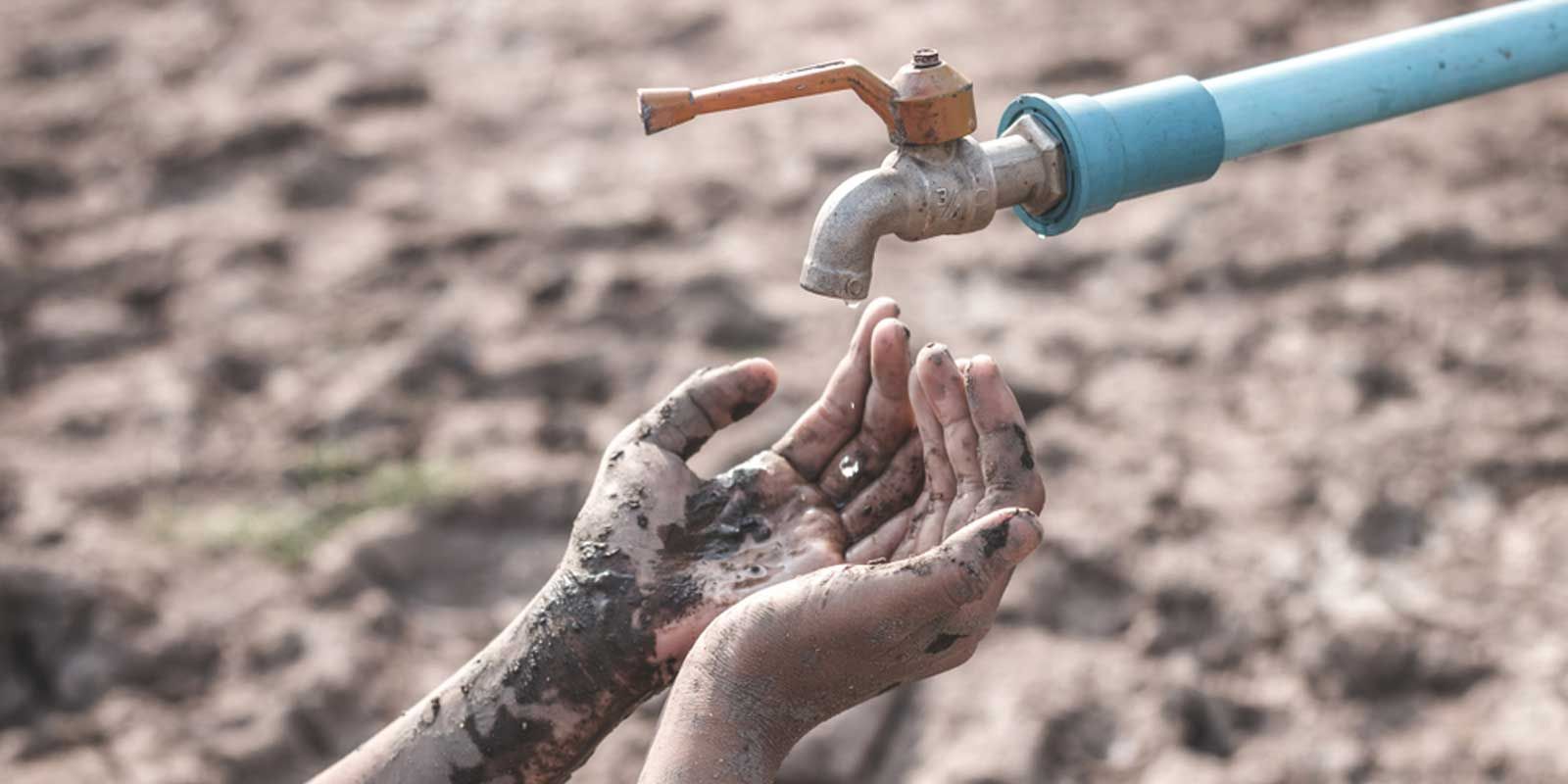One simple idea to conserve water daily is to fix any leaks in faucets, pipes, or toilets in your home. Even small leaks can waste a significant amount of water over time. Regularly check for leaks and promptly repair them to prevent unnecessary water loss. Additionally, you can reduce water usage by taking shorter showers, turning off the tap while brushing your teeth or washing dishes, and only running the dishwasher or washing machine with full loads. These small adjustments can add up to significant water savings over time.

-
Problem of water in the world
"Empowering students through engaging education, fostering environmental consciousness, and advancing scientific literacy. Committed to shaping future leaders in Life and Earth Sciences."
-
hat they are the continents most affected by the shortage of drinking water in the world
-
@MERIA2fb03b24d1
The continents most affected by the shortage of drinking water vary depending on numerous factors including population density, climate conditions, water management policies, and infrastructure development. However, regions in Africa and Asia are often cited as experiencing some of the most severe challenges regarding access to clean drinking water.In Africa, countries in the sub-Saharan region face significant water scarcity issues due to a combination of factors including rapid population growth, insufficient infrastructure, and climate change impacts such as droughts. Many communities in countries like Ethiopia, Somalia, Sudan, and Niger struggle to access safe drinking water on a daily basis.
Similarly, parts of Asia, particularly in South Asia and the Middle East, also contend with acute water scarcity problems. Countries like India, Pakistan, Bangladesh, and parts of the Middle East face challenges due to high population densities, agricultural demands, and overexploitation of water resources.
Efforts to address water scarcity in these regions often involve a combination of water conservation measures, infrastructure development, sustainable management practices, and international cooperation.


"Empowering students through engaging education, fostering environmental consciousness, and advancing scientific literacy. Committed to shaping future leaders in Life and Earth Sciences."
-
how wars contribute to water pollution?
-
@Bousl2336873cb4

_1715332999085.jpg)
how wars contribute to water pollution -
what's your opinion?



"Empowering students through engaging education, fostering environmental consciousness, and advancing scientific literacy. Committed to shaping future leaders in Life and Earth Sciences."
-
@Bousl2336873cb4 said in Problem of water in the world:
How did you react to this global problem with your students?
-
How did you react to this global problem with your students?
-
How did you react to this global problem with your students?
-
@Bousl2336873cb4
How did you react to this global problem with your students? -
Addressing the global issue of water scarcity or contamination with students can be a powerful educational experience. Here's how I might react to this problem with students:
Education and Awareness: Start by educating students about the importance of water, its role in ecosystems, and the various reasons why water scarcity and contamination occur. Use visuals, videos, and interactive activities to make the information engaging and memorable.
Discussion and Brainstorming: Encourage students to share their thoughts and concerns about the issue. Discuss the impact of water scarcity on communities, ecosystems, and economies. Brainstorm potential solutions, emphasizing the importance of collaboration and innovation.
"Empowering students through engaging education, fostering environmental consciousness, and advancing scientific literacy. Committed to shaping future leaders in Life and Earth Sciences."
-
Research Projects: Assign research projects that allow students to delve deeper into specific aspects of the water crisis, such as the causes, consequences, and potential solutions. Encourage them to explore case studies from different regions around the world.
Hands-on Activities: Engage students in hands-on activities that demonstrate the importance of water conservation and management. This could include water quality testing, building models of water treatment plants, or designing water-efficient gardens.
"Empowering students through engaging education, fostering environmental consciousness, and advancing scientific literacy. Committed to shaping future leaders in Life and Earth Sciences."
-
Community Outreach: Encourage students to take action in their own communities by organizing water conservation initiatives, participating in clean-up efforts, or raising awareness through events or social media campaigns.
Cross-curricular Integration: Integrate the issue of water scarcity into various subjects, such as science, geography, social studies, and mathematics. This interdisciplinary approach helps students understand the complexity of the problem and the interconnectedness of different systems.
"Empowering students through engaging education, fostering environmental consciousness, and advancing scientific literacy. Committed to shaping future leaders in Life and Earth Sciences."
-
Empathy and Perspective-taking: Foster empathy by discussing the disproportionate impact of water scarcity on vulnerable communities, particularly in developing countries. Encourage students to consider the perspectives of people who lack access to clean water and brainstorm ways to support them.
Long-term Sustainability: Emphasize the importance of long-term sustainability in addressing the water crisis. Encourage students to think critically about the implications of their actions and decisions on future generations and the planet as a whole.
By taking a multifaceted approach that combines education, action, and empathy, we can empower students to become informed global citizens who are actively engaged in addressing the challenge of water scarcity and contamination.
"Empowering students through engaging education, fostering environmental consciousness, and advancing scientific literacy. Committed to shaping future leaders in Life and Earth Sciences."
-
Re: Problem of water in the world
The global water crisis is a critical issue affecting millions of people worldwide. As educators and community leaders, schools play a vital role in addressing this problem.Here are some ideas to integrate water issues into school activities and raise awareness:
Educational Modules and Workshops:
Develop curriculum modules on water scarcity, pollution, and conservation.
Host workshops and seminars with water experts to educate students about the global water crisis and its local impacts.
2. Student Projects and Campaigns:
Initiate student-led projects focused on water conservation, such as creating awareness posters or organizing water-saving campaigns.
Encourage students to participate in community water audits and suggest improvements.
3. Partnerships and Collaborations:
Partner with local environmental organizations to run joint initiatives, such as clean-up drives and water conservation workshops.
Collaborate with nearby schools to create larger-scale awareness programs.
4. Community Engagement:
Organize community events like fairs or exhibitions to showcase water-saving technologies and practices.
Promote local water conservation efforts and encourage community participation in solutions.
6.Innovative Solutions:
Introduce water recycling systems and smart irrigation practices in school facilities.
Educate students on practical methods to reduce water usage at home and in their communities.By embedding these strategies into school programs, students and communities can work together to address and mitigate the impacts of the global water crisis.
Tabassum Laghari
Science Teacher
Sindh, Pakistan -
Hi Tabassumla
Integrating water issues into school activities can be both engaging and educational. Consider starting a water conservation campaign, conducting science experiments on water topics, and organizing field trips to water treatment facilities. Art projects, STEM challenges, and literature activities can also highlight water issues, while community projects and interactive games offer hands-on learning experiences. Exploring global water challenges and having students track their water usage in a diary can further deepen their understanding and encourage action.
Best Regards from Tunisia
Chokri"Empowering students through engaging education, fostering environmental consciousness, and advancing scientific literacy. Committed to shaping future leaders in Life and Earth Sciences."
-
"Empowering students through engaging education, fostering environmental consciousness, and advancing scientific literacy. Committed to shaping future leaders in Life and Earth Sciences."
-
"Empowering students through engaging education, fostering environmental consciousness, and advancing scientific literacy. Committed to shaping future leaders in Life and Earth Sciences."
-
@OUSSAfd6aa665af
Very Good
"Empowering students through engaging education, fostering environmental consciousness, and advancing scientific literacy. Committed to shaping future leaders in Life and Earth Sciences."
-
@Bousl2336873cb4
Addressing global water challenges demands a comprehensive strategy that integrates technological innovation, policy reform, and collective action. Key solutions include modernizing water infrastructure such as dams, pipelines, and treatment plants to improve distribution and reduce waste. Promoting conservation through leak repairs, efficient appliances, and water recycling can significantly curb unnecessary usage. Meanwhile, advancing desalination technology offers promise for water-scarce coastal areas, though renewable energy integration is essential to mitigate its environmental impact. Combined with sustainable agricultural practices and public awareness campaigns, these measures can help secure clean water access for future generations while fostering responsible stewardship of this vital resource.